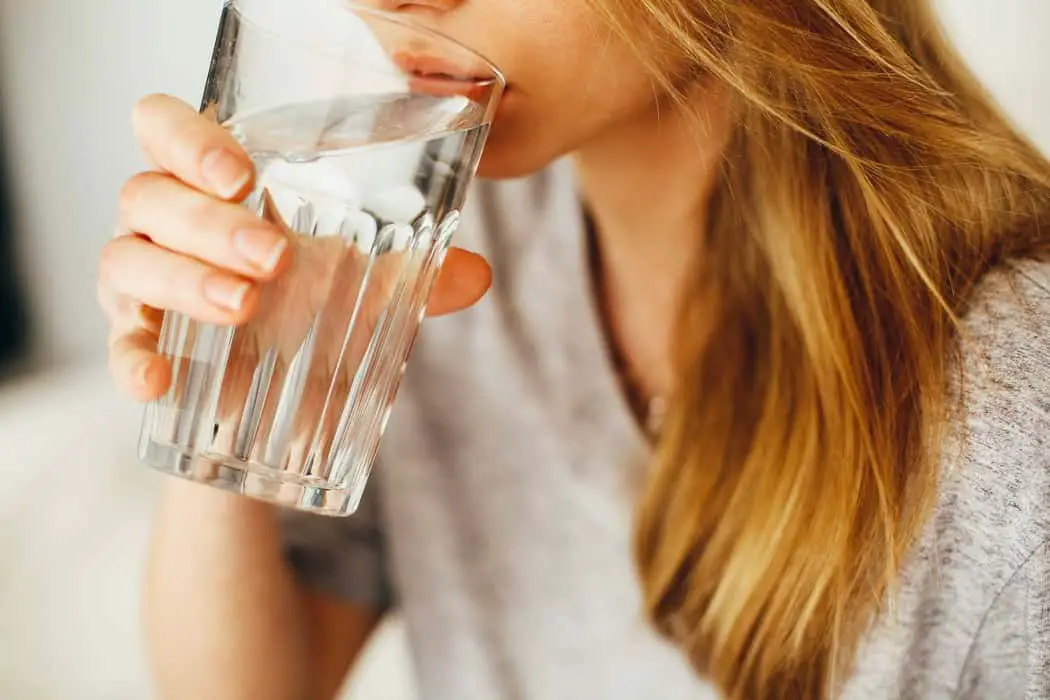The ketogenic diet can come with more symptoms than just losing weight, and not all of them might make a lot of sense at first. As I’ve mentioned in previous posts, once your body enters ketosis, it can experience a variety of side effects such as nausea, dehydration, insomnia, and even fatigue. However one symptom happens to a lot of people on keto that often goes unchecked is dry mouth.
The effects of dry mouth can be pretty annoying, but they definitely aren’t anything worth pulling yourself out of ketosis for. While it tends to also present itself with bad breath and an increased level of thirst, it’s a lot more manageable than most people think. Combatting these effects can be done fairly easily, and won’t require any big changes to your new diet routine.
However before we dig into the solution, let’s get a better idea of what “dry mouth” actually is, and why it’s so common on the keto diet.
What Is Dry Mouth?
The condition of dry mouth, also referred to as xerostomia, is characterized by a lack of saliva production, resulting in a feeling of increased thirst, and lingering bad breath.
A constant state of having a dry mouth is not just uncomfortable, but it can actually inhibit a lot of aspects of your daily life. Having chronic dry mouth can make it harder to eat and digest certain foods, and can even lead to an increased risk of cavities because dryer mouths have been known to be breeding grounds for bacteria.
Some other prevalent symptoms of dry mouth will often include:
- cheilitis(splitting or cracking) of the lips
- dysgeusia, (taste disorders)
- fungal infections in the mouth, such as thrush
- increased need to drink water, especially at night
- inflammation of the tongue, tongue ulcers
- more frequent cases of gingivitis
- a sore throat
- issues with speaking and annunciation
- sticky saliva
While the keto diet is heavily linked to dry mouth, it’s not always the main culprit, and you may want to rule out some other mitigating factors as well. Some causes of dry mouth that might be independent of the keto diet also include:
- Side effects of prescription medications
- Your age (older adults tend to develop dry mouth more frequently than younger adults, teens, and children)
- Injury or surgery, as seen in cases of nerve damage around the neck
- Tobacco use
- Dehydration
- Anxiety disorders
- Poorly monitored diabetes
- Excessive snoring or sleep apnea
- Allergies
- Excessive exercise without replenishing essential electrolytes
If you’re on the ketogenic diet, experience dry mouth, and don’t have any of these other present risk factors, you’ll definitely want to read further. Next, we’ll look into what aspects of the keto diet actually cause dry mouth symptoms.
How Does Keto Cause Dry Mouth?
When your body is in ketosis, your body is rapidly burning fat by using your ketones as fuel, and as expected, it can come with some associated changes in your body chemistry. Part of this new change in chemistry can affect your salivary glands, which are responsible for generating saliva to help break down your food.
Part of this new lack of saliva comes from the fact that your body isn’t as used to not having carbohydrates all the time. Carbs are a prevalent macronutrient, especially in America, and unless you’re eating carbs and using carb blockers on keto, it’s likely that your body is starting to experience some confusion with their absense.
Outside of a keto diet, when you consume foods that are rich in carbs, your body naturally converts them into glycogen, which the body would then use for energy. Every gram of that new glycogen also stores approximately 3 grams of water.
When you switch to a low carb diet, your body expects to receive those extra grams of water with each meal, making it produce less saliva than it should be, resulting in a dry mouth and increasing thirst.
Another big reason for dry mouth from keto is your new lowered levels of insulin.
On a high carb diet, your blood sugar levels are constantly spiking, causing the production of insulin from your pancreas. When insulin is produced at a high rate, it triggers your kidneys to start retaining more water. So when you switch to a low carb diet, your kidneys will be retaining less water because you’ll have fewer insulin spikes, resulting in an overall less hydrated body.
Some other common contributors to dry mouth on keto include:
- Not drinking enough water
As we all know, the keto diet can cause dehydration in a multitude of ways, which is why drinking ample amounts of water and replenishing electrolytes after every workout routine is extremely important. It may seem almost too obvious, but one of the most common causes of dry mouth on keto is simply because you’re not drinking enough water.
- Frequent urination that causes dehydration
It may come as a surprise to many, but frequent urination is actually a common side effect that signals that your body is in ketosis. When your body starts burning through ketones for fuel, it’s most simple way at disposing of them is through your urine. So when your body is in ketosis, especially in the early phases, you might notice that you’re urinating a lot more frequently to get rid of those excess ketones. One of the drawbacks of this is that you’ll need to stay on top of your hydration, because frequent urination can dehydrate you very quickly.
- Increased levels of acetone cause dry mouth and bad breath
Acetone is a specific type of ketone that is abundant within the body once it enters the state of ketosis. Like most ketones, it is excreted in the urine, but also is directly excreted through the breath. For these reasons, acetone in particular is often the culprit of keto dry mouth.
- Excess amounts of protein in your diet
On the keto diet, when you reduce your carb intake, you could inadvertently be eating more protein than your body can optimally process. When your body breaks down protein, it produces a gas known as ammonia, which is normally released through urine. When you’re eating too much protein to compensate for the lack of carbohydrates in your diet, the added ammonia that is produced has been linked to causing dry mouth and bad breath.
How to Get Rid of Dry Mouth on Keto

You’re finally in ketosis and burning fat more efficiently, but you don’t want to put up with the added dry mouth and bad breath. Fortunately for you, there are simple tweaks you can make to your daily lifestyle to help prevent dry mouth completely, without giving up on this powerful nutrition plan.
Some of the most effective ways to get rid of a dry mouth on keto include:
- Drink more water
As I mentioned above, fighting dehydration is one of the best ways to prevent keto dry mouth from happening. The keto diet can make it difficult to stay hydrated, especially if you’re not paying attention to your body after every meal and workout. By just putting in the extra effort of remembering to drink more water throughout the day, keto dry mouth can be a side effect of the past.
- Try electrolyte supplements
Hydration through water alone doesn’t always cut it. Restoring electrolytes is one of the most important aspects of hydration. The key electrolytes your body needs in order to hydrate include magnesium, potassium, and sodium.
I prefer using Ultima Hydrating Electrolyte Powder as a part of my daily routine to maintain my hydration.
- Use oral rinse
Oral rinses are a great way to both refresh the state of your breath, and to help activate your salivary glands. The one thing about oral rinses that you have to keep an eye out for is alcohol, because oral rinses that contain alcohol also can have a drying effect. I prefer to use PerioSciences’ alcohol-free hydrating mouthwash, which you can usually find over at Amazon.com
- Try sugar-free gum
Sugar-free gum is a quick and easy tool to help with bad breath and dry mouth. Unfortunately, most types of chewing gum are full of sugar, and will run the risk of pulling you out of ketosis. When looking into keto-friendly gum that’s still sweet and refreshing, you should look into products that contain keto-approved sweeteners such as stevia, aspartame, and monk fruit extract.
- Run a humidifier in your room
Running a humidifier in your room, especially while you are sleeping, will help a ton when it comes to offsetting the symptoms of dry mouth, because of all the added moisture in the air. If you are exposed to a lot of dry air during the day, or simply because of where you live in the world, humidifiers are an effective way to combat the effects. Not only do they help with your dry mouth, but they’ve been proven to have benefits for your breathing and skin quality too.
I recently purchased the Pallas Humidifier off Amazon, and it’s been very helpful for my keeping my room at the right climate while I sleep.
- Eat less protein (more fat)
As I mentioned above, eating too much protein can result in the production of ammonia, which can be lead to unpleasant body odor and dry mouth. However when you’re on the keto diet, your macronutrients are basically limited to proteins and fats. That’s why maintaining a good balance of healthy fats and protein is ideal when it comes to arranging your nutrition plan.
- Avoid caffeine
This one often comes as a surprise, but caffeine has been closely linked to decrease levels of salivary flow, which can result in more frequent episodes of dry mouth. Caffeine in the form of coffees, teas, and energy drinks is also characterized as a diuretic, which means that the more you have, the more easily you’ll become dehydrated.
Final Thoughts
While it may be annoying, dry mouth is a fairly mild side effect when compared to the revolutionary fat burning benefits of the ketogenic diet. As long as you remember what it is that’s causing your symptoms, and implement the tips I’ve laid out above, you should be on track to keep burning fat without letting it affect your mouth and breath in no time.

